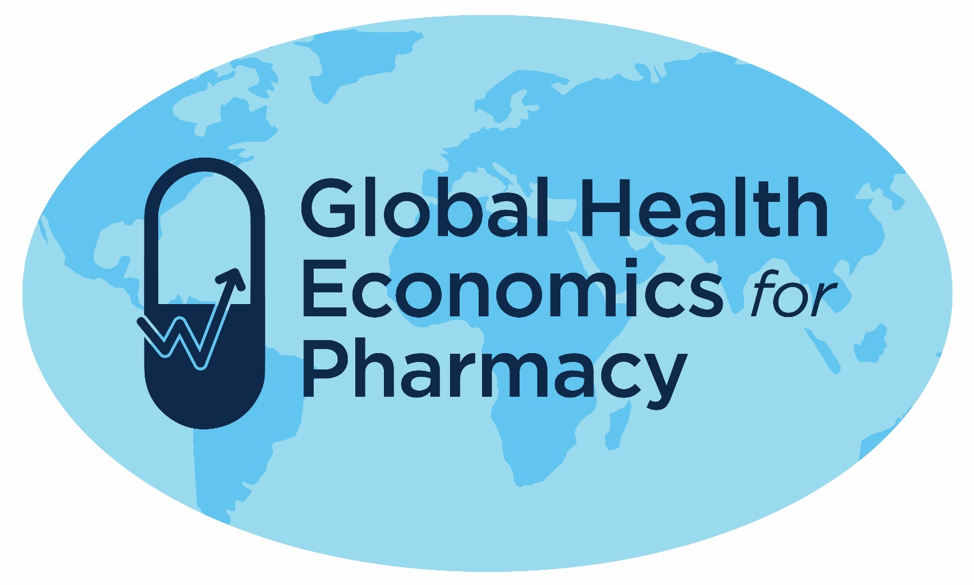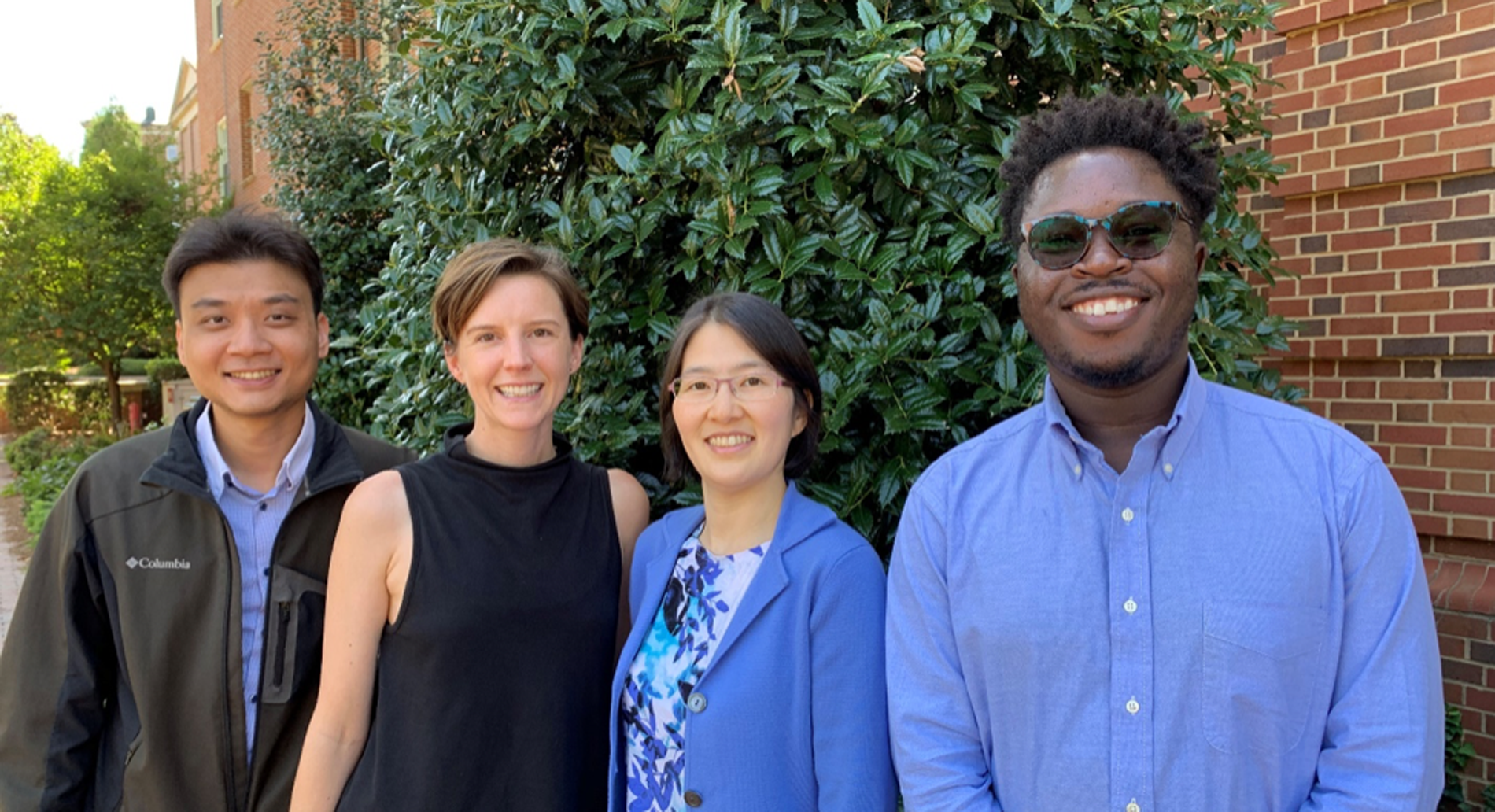Global Health Economics for Pharmacy Lab

Research
Our research is at the intersection of global health, pharmacy and health economics – applying economic tools to address a variety of health problems, with an emphasis on low- and middle-income countries.
Substandard and Falsified Medicines
Substandard and falsified medicines pose significant risks to global health with far reaching consequences. Beyond the effects on one’s health, there are economic impacts, such as wasted treatment costs and productivity losses to consumers, reduced sales and tax revenue and added costs to combat counterfeiting. Estimating the economic impact of substandard and falsified medicines is essential to understand the extent of the problem and make an investment case for solutions. We are working to estimate the economic impact of substandard and falsified medicines globally. To do this, our team has developed an agent-based model, entitled the Substandard and Falsified Antimalarial Research Impact (SAFARI) model. Details and methodology can be found here.
Antimicrobial Resistance
Antimicrobial resistance (AMR) is a growing threat to public health worldwide. Repercussions of AMR include treatment failure, prolonged treatment, and the necessity to use second and third line treatment regimens, which can all bear significant health and economic impact. Our team is developing an agent-based model, called the Dynamic Representation of the Economics of AMR (DREAMR) model to estimate the impact of AMR.
Value of Vaccines
While vaccines are widely regarded as one of the most cost-effective global health interventions, there remain gaps in the evidence base on the broader economic impact of vaccination. For example, evidence may be limited for select low- and middle-income countries or for specific population groups. Demonstrating the economic value of vaccines is important for countries to continue their investments in immunization programs and allocate further funding in health. We are gathering data and modeling the economic impact of the value of vaccination.
Recent Publications
Laing SK, Griffiths U, Raza AA, Zulu F, Yakubu A, Bessias S, Ozawa S. An investment case for maternal and neonatal tetanus elimination. Vaccine. 2020 Jan 21; pii: S0264-410X(19)31594-4. http://doi.org/10.1016/j.vaccine.2019.11.052.
Portnoy A, Clark S, Ozawa S, Jit M. The impact of vaccination on gender equity: conceptual framework and human papillomavirus (HPV) vaccine case study. International Journal for Equity in Health. 2020 Jan 14; 19(1):10. http://doi.org/10.1186/s12939-019-1090-3.
Tripicchio K, Urick B, Easter J, Ozawa S. Making the economic value proposition for pharmacist comprehensive medication management (CMM) in primary care: A conceptual framework. Research in Social and Administrative Pharmacy. 2020 Jan 2; pii: S1551-7411(19)30561-3. http://doi.org/10.1016/j.sapharm.2020.01.001
Ozawa S, Shankar R, Leopold C, Orubu S. Access to medicines through health systems in low- and middle-income countries. Health Policy and Planning. 2019 Dec 1; 34(Supplement_3):iii1-iii3. http://doi.org/10.1093/heapol/czz119
Evans D, Higgins C, Laing S, Awor P, Ozawa S. Poor quality antimalarials further health inequities in Uganda. Health Policy and Planning. 2019 Dec 1, 34(Supplement_3):iii36-iii47. http://doi.org/10.1093/heapol/czz012
Chen H, Stringer A, Eguale T, Rao G, Ozawa S. Impact of antibiotic resistance on treatment of pneumococcal disease in Ethiopia: an agent-based modeling simulation. American Journal of Tropical Medicine and Hygiene. 2019 Sep 16. 101(5):1042-1053. http://dx.doi.org/10.4269/ajtmh.18-0930
Evans D, Yemeke T, Kiracho E, Mutebi A, Apolot R, Ssebagereka A, Ozawa S. Trust in vaccines and medicines in Uganda. Vaccine. 2019 Aug 22. pii: S0264-410X(19)30913-2. http://dx.doi.org/10.1016/j.vaccine.2019.07.022
Ozawa S, Yemeke T, Evans D, Pallas S, Wallace A, Lee BY. Defining hard-to-reach populations for vaccination. Vaccine. 2019 Aug 7. pii: S0264-410X(19)30858-8. http://dx.doi.org/10.1016/j.vaccine.2019.06.081
Tak C, Marciniak M, Savage A, Ozawa S. The essential role of pharmacists facilitating vaccination in older adults: The case of Herpes Zoster. Human Vaccines & Immunotherapeutics. 2019 Aug 1:1-6. http://dx.doi.org/10.1080/21645515.2019.1637218
Beargie S, Higgins C, Evans D, Laing S, Erim D, Ozawa S. The economic impact of substandard and falsified antimalarial medications in Nigeria. PLoS One. 2019 Aug 15; 14(8):e0217910. http://dx.doi.org/10.1371/journal.pone.0217910
Lee B, Brown S, Haidari L, Clark S, Abimbola T, Pallas S, Wallace A, Mitgang E, Leonard J, Bartsch S, Yemeke T, Zenkov E, Ozawa S. (2019) Economic value of vaccinating geographically hard-to-reach populations with measles vaccine: A modelling application in Kenya. Vaccine. Mar 2019 http://dx.doi.org/10.1016/j.vaccine.2019.03.007
Ozawa S, Haynie D, Bessias S, Laing S, Yemeke T, Evans D. (2019) Modeling the economic impact of substandard and falsified antimalarials in the Democratic Republic of Congo. American Journal of Tropical Medicine and Hygiene. Jan 2019 https://doi.org/10.4269/ajtmh.18-0334
Ozawa S, Evans D, Higgins C, Laing S, Awor P. (2019) Development of an agent-based model to assess the impact of substandard and falsified anti-malarials: Uganda case study. Malaria Journal. 18:5. http://dx.doi.org/10.1186/s12936-018-2628-3
Ozawa S, Villar-Uribe M, Evans D, Kulkarni V, Por I. (2018) Building informed trust: developing an educational tool for injection practices and health insurance in Cambodia. Health Policy and Planning. 33(9):1009-17. http://dx.doi.org/10.1093/heapol/czy080
Ozawa S, Evans D, Bessias S, Haynie D, Yemeke T, Laing S, Herrington J. (2018) Prevalence and estimated economic burden of substandard and falsified medicines in low- and middle-income countries: A systematic review and meta-analysis. Jama Network Open. 1(4):e181662. http://dx.doi.org/10.1001/jamanetworkopen.2018.1662
Ozawa S, Yemeke TT, Thompson KM. (2018) Systematic review of the incremental costs of interventions that increase immunization coverage. Vaccine. 36:3641-9. http://dx.doi.org/10.1016/j.vaccine.2018.05.030
Ozawa S, Zhou M, Wonodi C, Chen H, Bridges J. (2018) Parents’ preferences for interventions to improve childhood immunization uptake in northern Nigeria. Vaccine. 36(20): 2833-2841. http://dx.doi.org/10.1016/j.vaccine.2018.03.073
Morizio P, Burkhart J, Ozawa S. (2018) Denosumab: A unique perspective on adherence and cost-effectiveness compared with oral bisphosphonates in osteoporosis patients. Annals of Pharmacotherapy. 2018; 1-11. http://dx.doi.org/10.1177/1060028018768808
Ozawa S, Yemeke T, Tawah A, Kulkarni V, Villar-Uribe M. (2018) Out-of-pocket household expenditures on medical injections in Cambodia. PharmacoEconomics – Open. 1-7. http://dx.doi.org/10.1007/s41669-018-0067-2
Ozawa S, Wonodi C, Babalola O, Ismail T, Bridges J. (2017) Using best-worst scaling to rank factors affecting vaccination demand in northern Nigeria. Vaccine. 2017 Oct; S0264-410X(17):31332-4. http://dx.doi.org/10.1016/j.vaccine.2017.09.079
Ozawa S, Clark S, Portnoy A, Grewal S, Stack M, Sinha A, Mirelman A, Franklin H, Friberg I, Tam Y, Walker N, Clark A, Ferrari M, Sweet S, Goldie S, Vynnycky E, Reef S, Grant G, Garske T, Li M, Hansen P, Johnson H, Walker D. (2017) Economic impact of vaccination against 10 vaccine-preventable diseases across 73 low- and middle-income countries, 2001-2020. Bulletin of the World Health Organization. 2017;95:629-638. http://dx.doi.org/10.2471/BLT.16.178475
Haidari L, Brown S, Constenla D, Zenkov E, Ferguson M, de Broucker G, Ozawa S, Clark S, Portnoy A, Lee B. (2017) Geospatial planning and the resulting economic impact of human papillomavirus vaccine introduction in Mozambique. Sexually Transmitted Diseases. 2017 Apr; 44(4):222-226. http://dx.doi.org/10.1097/OLQ.0000000000000574
FACULTY
RESEARCH ASSOCIATES
Hui-Han Chen
FELLOWS
Tatenda Yemeke
GRADUATE STUDENTS
Class of 2020
- Yiwei Lu
- Jinah Han
- Stephen McMillan
Class of 2021
- Arden Bui
- Vy Bui
- Ben Penley
Class of 2022
- Betty Kobia
- Jordan Sun
ALUMNI
Former Research Associates
- Sophia Bessias
- Daniel Evans
- Deson Haynie
- Sarah Laing
Former Students
- Sarah Beargie
- Christine Chong
- Kathryn Jackson
Global Health Economics for Pharmacy Lab
At the Global Health Economics for Pharmacy (GHEP) lab, our faculty and researchers work to develop economic evidence for vaccines, medicines and pharmacy practice to save lives, improve quality of care and reduce poverty globally. We invite you to learn more about our vigorous research agenda and contact us for further information on our activities and services.
GHEPS News
Open Positions
We are interested in recruiting highly motivated people interested in global health economics at all levels (research associates, graduate students) research to join our research group.
Please email ozawa@unc.edu with your CV and cover letter about potential interests.





